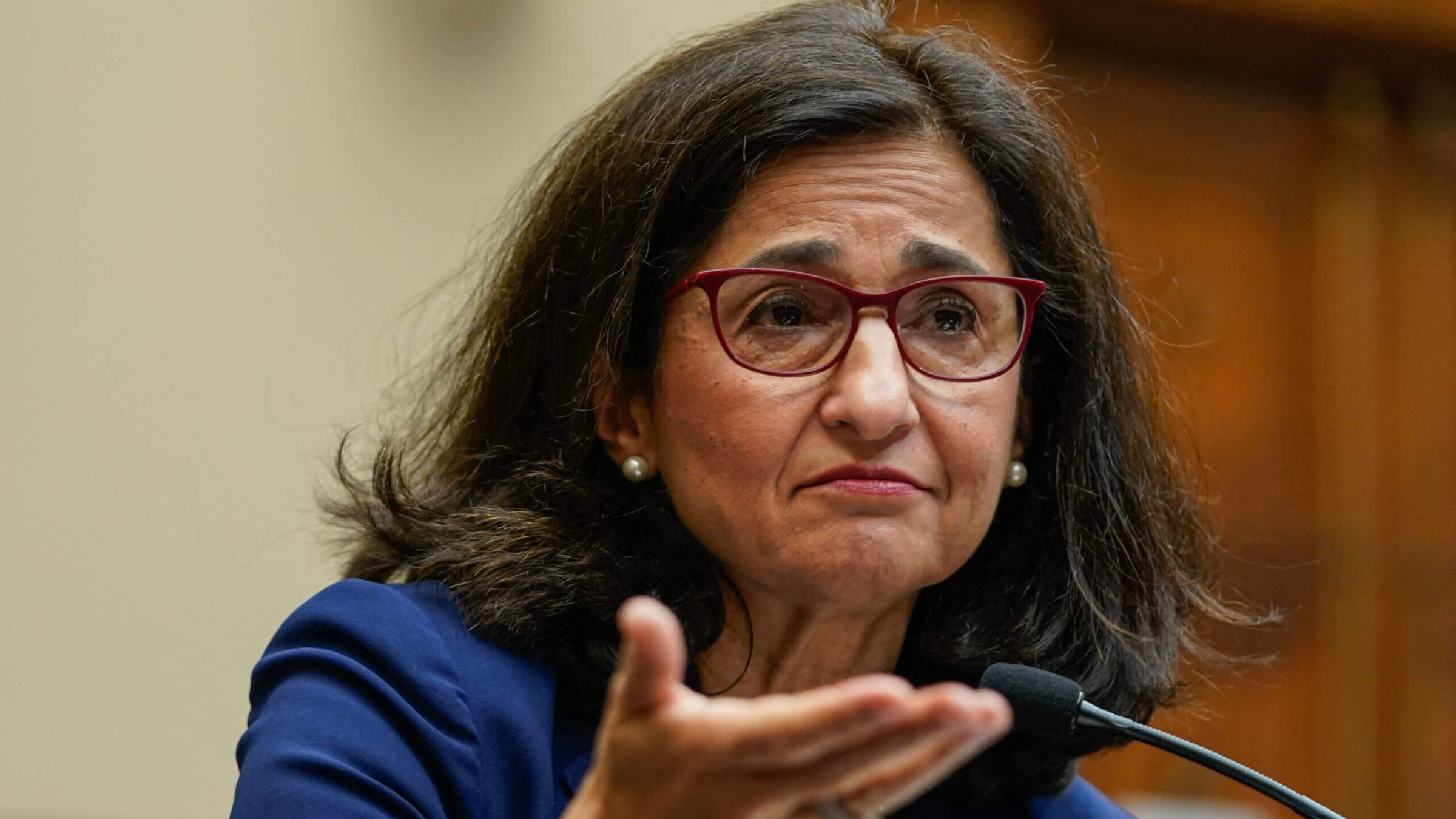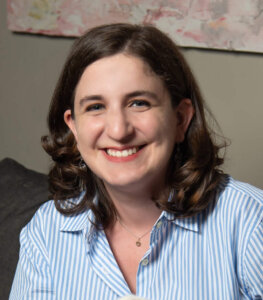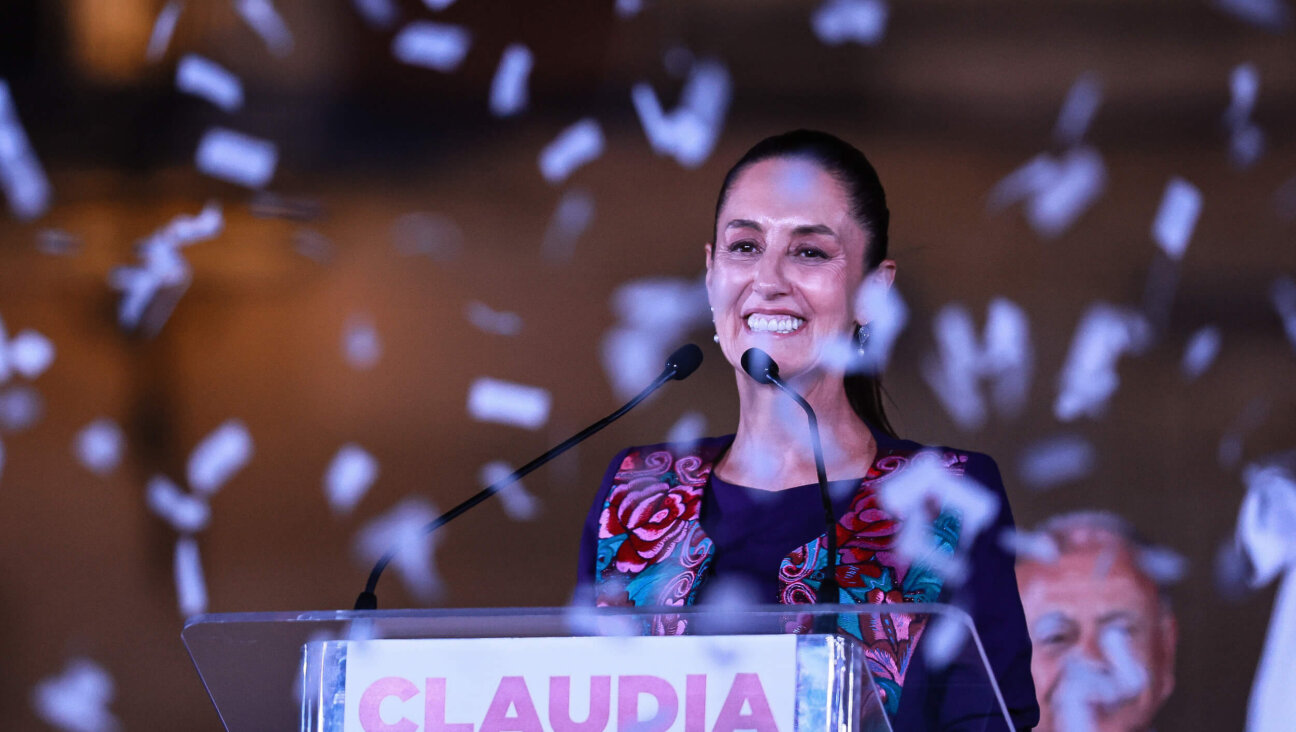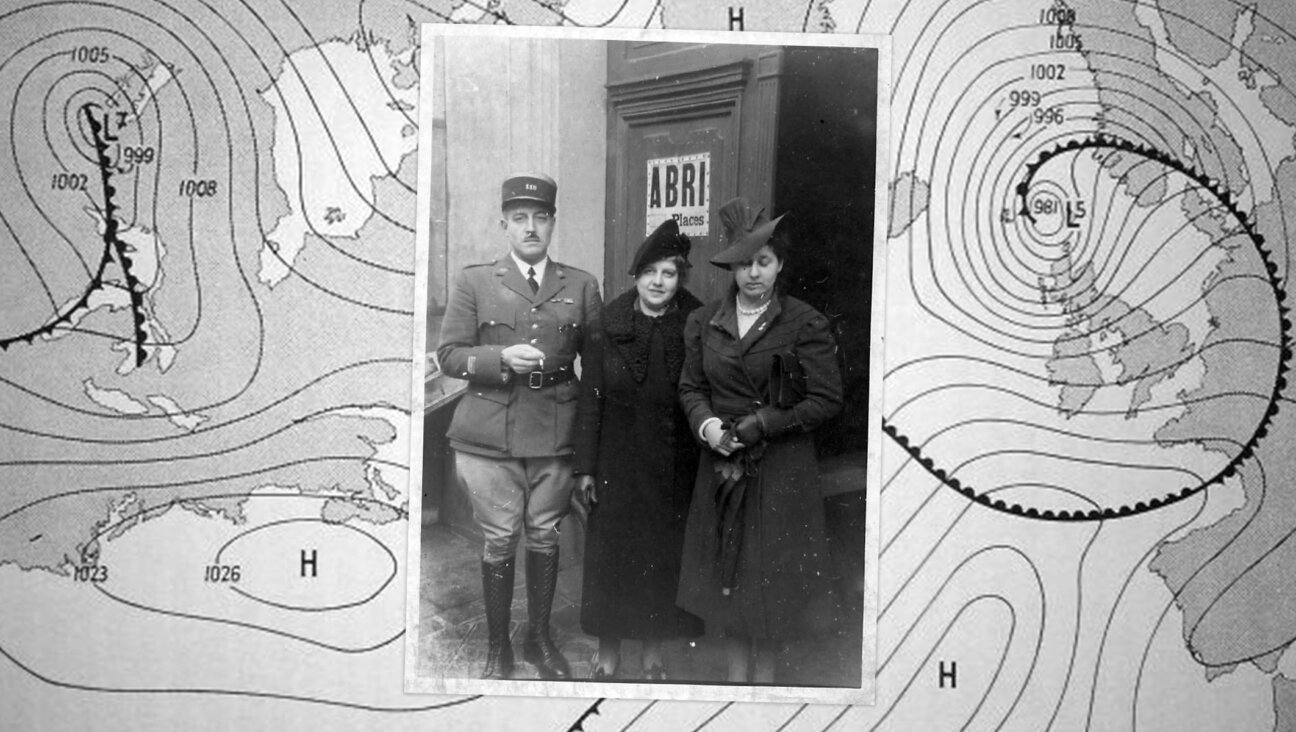The hearing with Columbia’s president was political farce
The Congressional hearing on antisemitism gave politicians sound bites and did not help protect Jewish students

President of Columbia University Dr. Nemat (Minouche) Shafik testifies during a House Committee on Education and the Workforce hearing about antisemitism on college campuses, on Capitol Hill in Washington, DC, April 17, 2024. Photo by Drew Angerer/AFP via Getty Images
“The congressional hearings were a master class in political theater.”
Nara Milanich, a professor of history at Barnard College (part of Columbia University) expressed frustration when she texted me earlier today after Columbia president Nemat Shafik appeared before the House Committee on Education and the Workforce this week to discuss what Columbia has done to tackle antisemitism on campus.
“I think President Shafik had an opportunity to stand up for the values of academic freedom, free speech and the value of the university to research, teach, and engage on difficult issues,” Milanich wrote. “She chose not to do so.”
To watch the hearing was to be reminded that to haul a university president before Congress both fails to fight antisemitism and misunderstands the function of universities.
Shafik did not attend a similar hearing in December, at which the presidents of Harvard, the University of Pennsylvania, and the Massachusetts Institute of Technology felled themselves by wavering on the question of whether calling for genocide against Jews violates the code of conduct. Shafik, with the benefit of appearing four months later, was ready to answer that yes, it does.
She acknowledged that the university had not done enough to tackle antisemitism, but pointed to specific steps, like that professor Joseph Massad, who described scenes from Oct. 7 as “awesome,” was under investigation, and that two pro-Palestinian student groups had been suspended.
That these actions are being held up to defend a university in a political arena is deeply problematic.
Firstly, there is the reality that the members of the committee have themselves used rhetoric that is widely considered antisemitic.
Rep. Elise Stefanik, who went viral for her tough questioning of the presidents at the earlier hearing, has echoed the “great replacement theory,” widely recognized as antisemitic as it pushes the idea that globalist elites are trying to change the demographics of a given country. The committee also includes Rep. Mary Miller, who, on Jan. 6, 2021, quoted Adolf Hitler in her speech at the U.S. Capitol prior to the violent riot about the importance of our youth to the future.
This is to say nothing of the committee members’ comments on Palestinians. Rep. Tim Walberg has suggested bombs be dropped on Gaza “like Hiroshima and Nagasaki.”
In addition to the committee members’ own checkered history with antisemitism, these members of Congress appeared profoundly ill-equipped to actually address antisemitism. For example, Rep. Rick Allen cited Genesis (“I will bless those who bless you, and curse those who curse you…”) and asked Shafik if she wanted Columbia to be cursed. He also suggested the school offer a class on the Bible.
All Columbia College undergraduate students are required to read the Bible, or parts of it, as part of its Core Curriculum. But even if that were not true: Why is a U.S. representative suggesting coursework at Columbia? How does asking the president of a university if she wants her university to be “cursed” fight antisemitism?
We are told that these hearings are for the well-being and safety of “Jewish students.” But which Jewish students? There are Jewish students who are staunchly pro-Israel and Jewish students who are highly critical of Israel; there are religious Jewish students and secular Jewish students. Some have spoken out about antisemitism on campus; others have pleaded for outside activists to remember universities are for learning, not fighting.
Law professor David Schizer, co-chair of Columbia’s task force on antisemitism, testified alongside Shafik, and stated that Israel “is a core part of Jewish identity.” “That is false,” Sheldon Pollock, an emeritus professor of South Asian studies at Columbia, wrote me in an email. “Many Jews are indifferent to Zionism, or are non-Zionists, or are anti-Zionists, something abundantly attested to in the history of Jewish nationalism over the last 150 years.” Schizer’s misconception, Pollock continued, was a prime example of the acute confusion about antisemitism itself, which, ostensibly, is what the hearing was about.
It is worth remembering here that older American Jews are actually more worried about antisemitism on campus than younger American Jews. Is it helpful to these Jewish students to have members of Congress tell them who they are and what they believe?
The students are not the only ones on campus with different opinions on antisemitism. At Columbia, there is a staunchly pro-Israel assistant professor, Shai Davidai, who accused Shafik of lying to Congress (and who, Shafik shared with the committee, is himself under investigation for harassment of pro-Palestinian students); there are also a number of Jewish faculty who wrote an open letter ahead of the hearing asking Shafik to reject the weaponization of antisemitism.
Given that Jewish individuals and organizations do not agree on how to define antisemitism, it is not surprising that Jewish faculty on a given campus disagree on what constitutes antisemitism on that campus.
The hearing’s questions — so clearly designed to produce a gotcha moment or fleeting virality for the committee members — were an obvious reminder that the function of politics is not the function of academia. Politicians are ostensibly elected to try to represent their constituents and push through certain policies. University administrators are ostensibly creating and managing environments where people can safely learn and debate ideas.
There are real questions about where free speech ends and harassment or safety begins. But a congressional hearing led by politicians with highly individual agendas is not place to adequately address them. “A congressional hearing is a terrible place to debate difficult issues. Like social media, it’s a forum that thrives on soundbites and gotcha moments,” Milanich told me.
Pollock was shocked at the absence of the words “academic freedom” from the Columbia delegation’s testimony. “Academic freedom was developed precisely to shield professors from these kinds of assaults from politicians and other parties external to the university.”
That there is a tension between academia and politics is not limited to Columbia. Neither are questions of academic freedom. Lila Corwin Berman, professor of history at Temple University, wrote in an email that watching the hearing, she was “struck by how scary it feels” watching Congress get involved in the minutiae of university life, in what she described as “an overreach of power in a way that jeopardizes the core role that universities serve in democracies.”
Universities have many different constituencies, she wrote, and politicians are arguably one such constituency. But when politicians get involved in campus governance, they add a significant amount of power to a situation, inflating their role in, say, issues of disciplining professors, far beyond what it should be. The Department of Education is already investigating multiple antisemitism cases on college campuses. “It’s not clear to me why politicians think they need to be doing this work,” Corwin Berman wrote, “unless their motivations are well beyond protecting Jewish students.”
Milanich worried that instead of protecting Jewish students, the hearings would have the opposite effect. “If anything, these measures make it harder for people to confront bigotry or ignorance — to discuss and debate, to confront opinions different from their own.”
Still, various members of the committee got to put out clips of various moments from the hearing on social media. Perhaps, to them, the hearing achieved its true purpose after all.






















